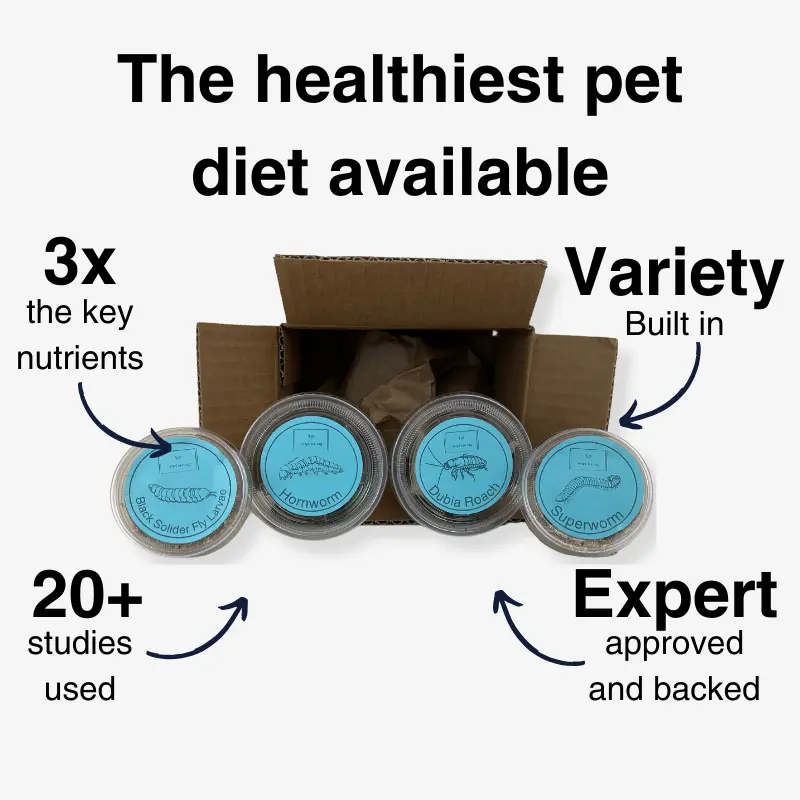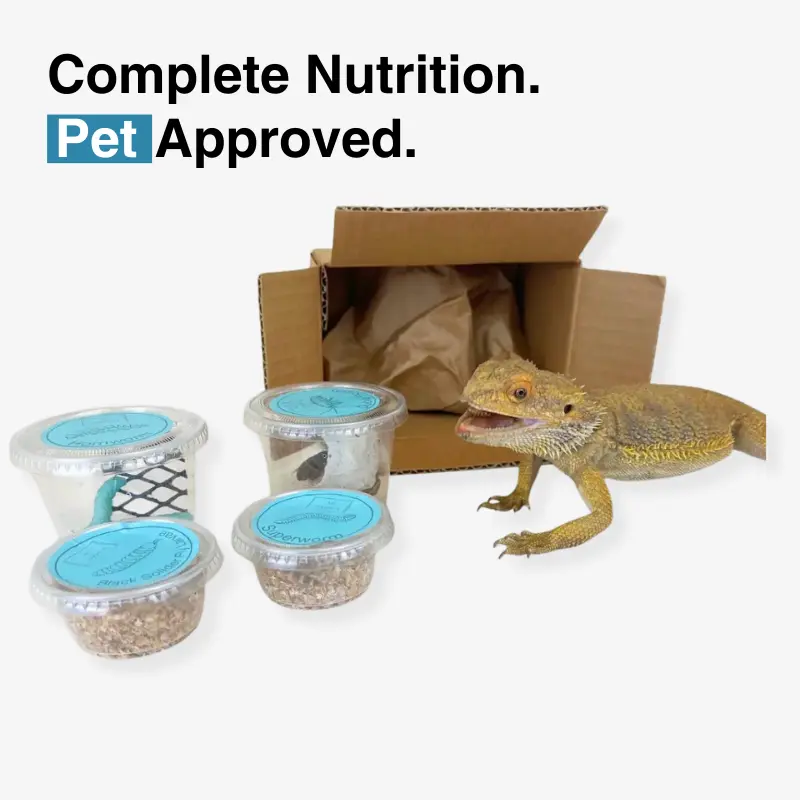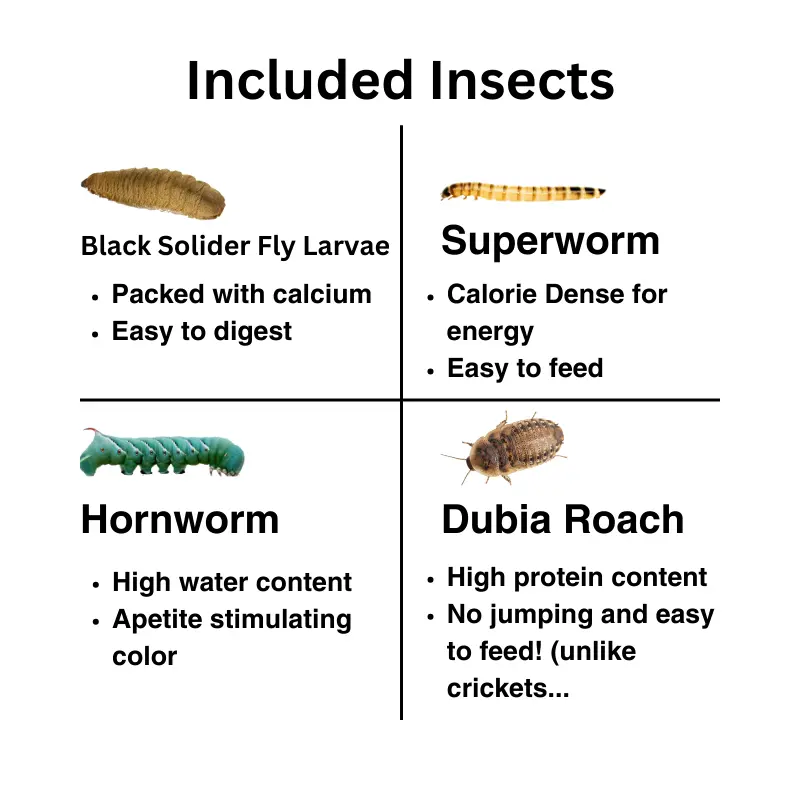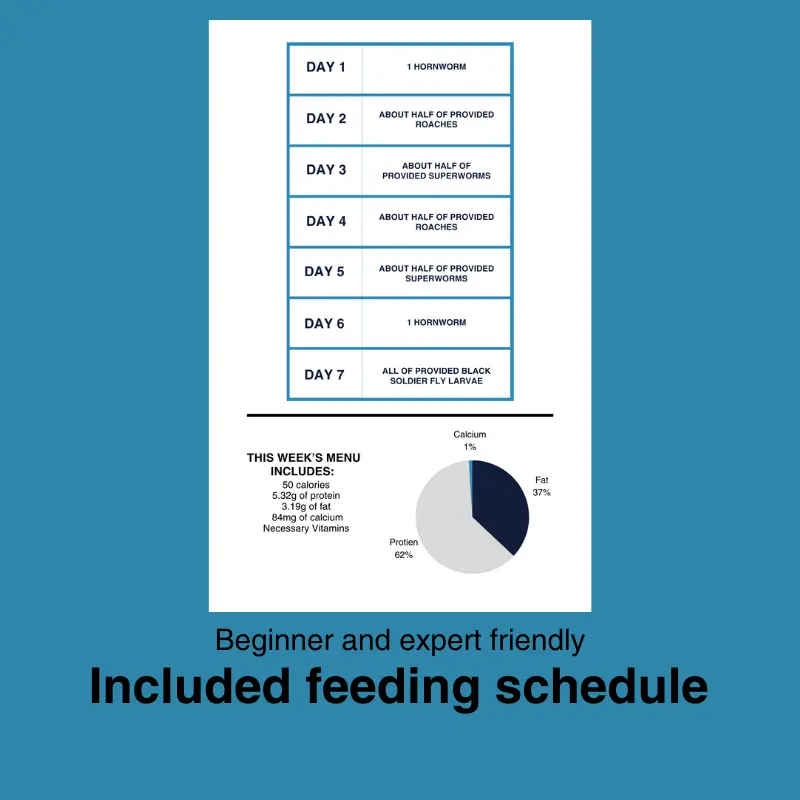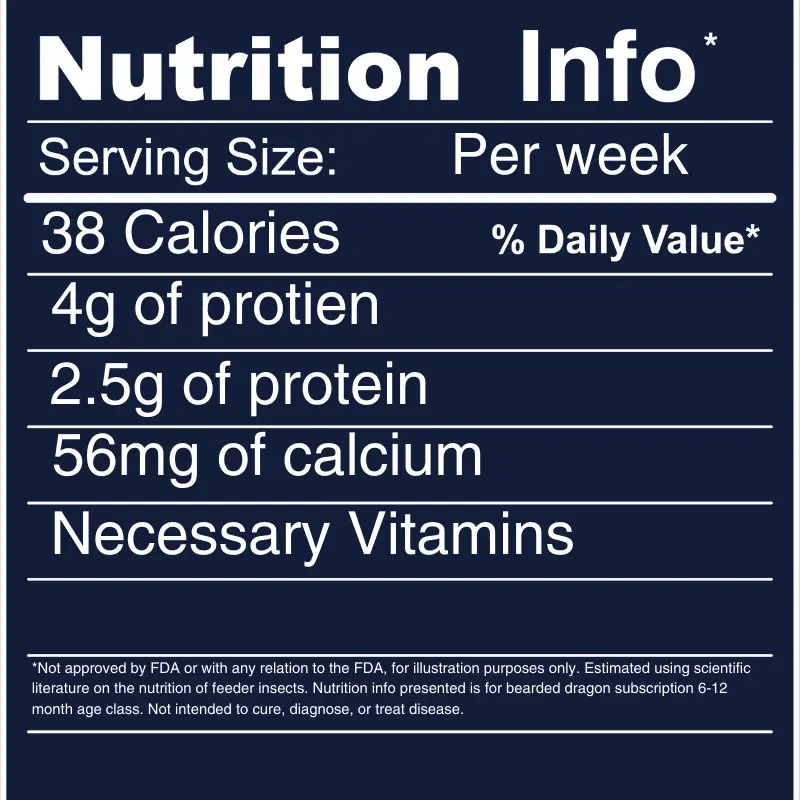Bearded Dragon Food Subscription
Responsible Pet Care Starts Here.
Flat Rate Shipping
High Quality Insects
Predicable Expenses
Provided quantities are carefully selected by age. You’ll receive 4 insect types: Dubia Roaches, hornworms, superworms, and Black Solider Fly Larvae.
If things don’t make it to you in great shape, no worries. We’ll take care of it.
We’ve done careful research to establish the right feeding quantity based on your pets age. We use a high precision scale to ensure you receive exactly as much as the science says you need!
Let's Talk Diet.
The Food Your Pet Needs.
The research is clear: diet is critical and health problems are the norm if you don’t do it right. With HerpCare, you can be confident you’re feeding your pet the diet they need to thrive and avoid costly mistakes.
Less than
of subscribers report health issues*
Compared to over
of regular reptile owners, according to Clifford Warwick, PhD
Packed with Nutrients.
Diversity is king when it comes to proper diet. Every feeder insect contains very different nutritional content. Experts agree, by feeding a variety of insects you can cover all your pets nutritional needs.
Up to...
Key Nutrients
Variety
Key Vitamins
of a cricket only diet
How do we compare?
Helps Prevent Health Issues*
Matches Your Pets Wild Diet
Built & Delivered For You
Expert Approved
What Do Pet Owners Say?





FAQs
Your insect deliveries will contain a custom curated quantity of 4+ insect species. We design your subscription around your pet’s species and age to give them the perfect nutritional make-up they need to be healthy.
You’ll receive a delivery once a week. This way, the insects you get are always fresh, and you’ll never have to worry about caring for them. We ship all insects with food to keep them healthy until your pet is ready for them.
We charge a simple and affordable flat rate fee of $3.99
Never. Cancel any time.
Currently, we offer subscriptions for Bearded Dragons, Crested Geckos, and Leopard Geckos. We are always looking to support new reptile owners, so check back often or send us a message if yours isn’t supported yet.
The satisfaction of reptile owners and their pets is our number one priority. If you have any issues with your shipment at all, simply contact support@herpcare.org and we will try out hardest to make things right. That’s the HerpCare Guarantee.
*based on data collected from HerpCare subscribers. HerpCare makes no guarantees concerning the health of your pet. We simply offer an easy way to feed a great diet. You’re responsible for ensuring general pet health.
